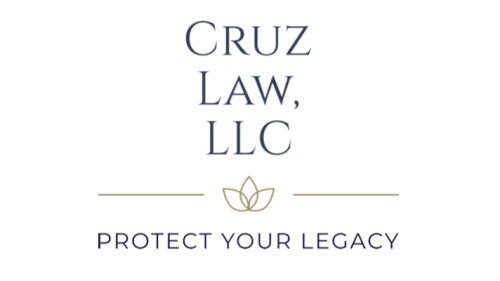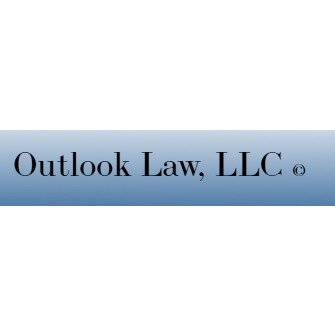Best Communications & Media Law Lawyers in Alaska
Share your needs with us, get contacted by law firms.
Free. Takes 2 min.
Or refine your search by selecting a city:
List of the best lawyers in Alaska, United States
About Communications & Media Law in Alaska, United States
Communications and Media Law in Alaska covers the rules and regulations that govern how individuals, businesses, and organizations use and interact with various forms of communication, including print media, broadcast television and radio, digital media, and telecommunications. This area of law addresses issues such as freedom of speech, defamation, privacy rights, access to information, licensing, and compliance with federal and state regulations. Due to Alaska’s unique geography and demographic composition, specific legal considerations may arise that differ from other states, especially regarding rural communication access and media coverage of indigenous communities.
Why You May Need a Lawyer
There are many situations where a person or business may require the help of a lawyer with experience in communications and media law in Alaska:
- You are facing potential libel or defamation claims resulting from something published or broadcast
- Your business wants to launch a radio, TV, or online broadcasting operation and needs guidance on FCC compliance and licensing
- You are a journalist or content creator concerned about freedom of speech, press rights, or source protection
- You have received a takedown request or cease and desist letter related to content you posted online
- You believe your privacy has been invaded by a media outlet or communications provider
- You want to contest public records access or address issues related to open meetings laws
- Your communications company has been accused of violating advertising or telemarketing rules
- You are unsure how federal and state laws apply to publishing, broadcasting, or digital media in Alaska
Local Laws Overview
Alaska law applies many federal communications regulations but also has its own statutes and administrative codes that address media and communications. Critical issues include:
- Defamation laws specific to Alaska, including recognition of truth, opinion, and retraction defenses
- Alaska Public Records Act, which governs access to government-held information and includes unique rules for rural and tribal areas
- Regulation of telecommunications, including service obligations in remote regions
- Alaska’s shield law, offering journalists some protection from being compelled to reveal confidential sources
- Privacy protections regarding the recording of conversations - Alaska is a one-party consent state
- State statutes prohibiting certain types of deceptive advertising and telemarketing practices
- Compliance requirements for broadcast media established through a combination of state law and federal oversight (FCC)
- Special regulations around coverage of trials and court proceedings aimed at balancing public interest and fair trial rights
Frequently Asked Questions
What is considered defamation under Alaska law?
Defamation in Alaska includes both libel (written statements) and slander (spoken statements) that seriously harm a person’s reputation. Alaska law allows for certain defenses, including truth, opinion, and fair reporting of public proceedings.
Can I record a phone call or conversation in Alaska?
Yes, Alaska is a one-party consent state, which means you can record conversations as long as at least one participant (including yourself) consents to the recording.
Do I need a license to broadcast radio or television in Alaska?
Yes, broadcasting requires a license from the Federal Communications Commission (FCC). Alaska broadcasters must also comply with specific state regulations and public service requirements.
How does Alaska protect journalists and their sources?
Alaska has a shield law that provides some protections to journalists, allowing them to refuse to disclose confidential sources or unpublished information in some circumstances. However, these protections are not absolute.
How can I request public records in Alaska?
You can request public records under the Alaska Public Records Act by submitting a written request to the appropriate government agency. They are required to respond within specific timeframes, though there may be exceptions.
Are there laws about advertising and telemarketing in Alaska?
Yes, Alaska law prohibits certain deceptive advertising and regulates telemarketing, including rules for robocalls, do-not-call lists, and false or misleading statements.
What are my rights if a news outlet publishes something false about me?
You may have a legal claim for defamation if the information is provably false and has harmed your reputation. Seek prompt legal advice to determine your options, which may include a retraction request or filing a lawsuit.
What is the Alaska Public Records Act?
The Alaska Public Records Act requires government agencies to provide public access to records, with certain exceptions for privacy, ongoing investigations, or sensitive information.
How are media and communications laws enforced in Alaska?
Enforcement involves both state agencies - such as the Alaska Department of Law Consumer Protection Unit - and federal authorities like the FCC. Violations may result in fines, lawsuits, or other penalties.
Are there special considerations for media coverage of tribal or indigenous issues in Alaska?
Yes, there are unique cultural and legal considerations when covering Alaska Native issues, including respect for traditions, privacy, and compliance with both state and federal regulations related to indigenous communities.
Additional Resources
- Alaska Department of Law - Provides consumer protection and enforces advertising and privacy laws
- Federal Communications Commission (FCC) - Governs interstate and international communications
- Reporters Committee for Freedom of the Press - Offers guidance on shield law and journalist rights
- Alaska Press Club - Resource for media professionals and journalists working in Alaska
- Alaska Broadcasters Association - Provides information and advocacy for Alaska’s broadcast media
- Local legal aid organizations - Some offer free or low-cost legal advice on communications-related issues
Next Steps
If you believe you need legal assistance in the area of communications and media law in Alaska, consider the following steps:
- Gather and organize all relevant documents and communications, such as publication copies, emails, recordings, or correspondence
- Identify the specific issue or incident for which you need help, and make detailed notes about dates, parties involved, and potential witnesses
- Research and choose a lawyer or legal service with experience in communications and media law and a knowledge of Alaska’s unique legal landscape
- Contact the lawyer to schedule a consultation - many offer a brief initial discussion at no cost
- Prepare your questions and be ready to discuss potential outcomes, costs, and timelines
Lawzana helps you find the best lawyers and law firms in Alaska through a curated and pre-screened list of qualified legal professionals. Our platform offers rankings and detailed profiles of attorneys and law firms, allowing you to compare based on practice areas, including Communications & Media Law, experience, and client feedback.
Each profile includes a description of the firm's areas of practice, client reviews, team members and partners, year of establishment, spoken languages, office locations, contact information, social media presence, and any published articles or resources. Most firms on our platform speak English and are experienced in both local and international legal matters.
Get a quote from top-rated law firms in Alaska, United States — quickly, securely, and without unnecessary hassle.
Disclaimer:
The information provided on this page is for general informational purposes only and does not constitute legal advice. While we strive to ensure the accuracy and relevance of the content, legal information may change over time, and interpretations of the law can vary. You should always consult with a qualified legal professional for advice specific to your situation.
We disclaim all liability for actions taken or not taken based on the content of this page. If you believe any information is incorrect or outdated, please contact us, and we will review and update it where appropriate.
Browse communications & media law law firms by city in Alaska
Refine your search by selecting a city.














